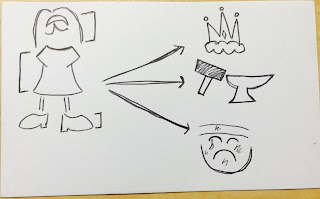Social media is like the friend you share a love/hate relationship with. I think it's fair to say it's one of the world's greatest tools for communicating with loved ones and reconnecting with people all over the world. Yet, even though social media may have risen from pure intentions, the world has found away to abuse it's power and the security of one's identity is at risk.
The cute girl on the right hand side of the picture above is my little sister Kazna. She's just O for Owesome. The picture collage is one my mother put together on a random day and posted on Facebook. As I've watched her grow in this crazy digital world, I often wonder if the social pressure that comes from social media affects the way she could grow as an individual woman ... independent of popular/worldly opinion ... or, in better Facebook terms, "likes" and "followers"
Aaaaahhhh ... The evolutionary duck face. Who decided that this particular facial expression was just so "like-able"? You see this face everywhere! People of all ages strike the peace-sign-puck-up-your-lips face in many different social settings ... but ummm, what's the point? This "fad" is one of my least favorites (hence why I removed this picture from my profile when I realized I was making the same face as my 16 year old sister #mature), but has been made so popular because it is simple, and everybody can do it.
What we seem to forget all the time is that fads like the duck face, the whip, the dab, jeggings, etc., are all born to eventually burn out. There is no real substance to them, yet, because they are simple and easy, EVERYONE wants to be apart of that hip culture!
In early Italy, Fashion was established as a way to communicate to everybody "who you were" and "what you do". People started figuring out that if they looked a certain way, it brought greater respect, popularity and opportunity. Doesn't that sound dangerously similar to the cycle we fall into within social media? Depending on how well we conform to what the world thinks is cool determines how much respect and popularity we earn.
Italy, however, is only one example of many countries at that time who were coming up with new ideologies and concepts that they wanted to share with the world. This seems to be the beginning of globalized culture.
Then came technology! What a step people made in history when the internet, radio, television, computer and all other sorts of technology were created. The rise of technology also brought about an easier way to spread new ideas quickly. In this century, technology has catapulted the spread of literally anything and everything both good and bad.
I would highly recommend watching "The Curly Fry Conundrum", a Ted talk presented by Jennifer Golbeck. She shares some great examples of how the cycle of what we "like" determines what we see, hear and share on social media.... a huge factor contributing to our "mass cultural issue".
A Closing Thought ...
According to Trevor J. Blank, the author of the book, Folk Culture in the Digital age, he says, "Writing in 1961, Historian Daniel Boorstin lamented that:
American society had witnessed the decline of the 'folk' and the rise of 'the mass,' adding that 'while the folk created heroes, the mass could only look and listen for them.' The folk had a universe of it's own creation... The mass lives in a very different fantasy world." I desperately agree with Boorstin! Fad culture is becoming the singular dominant culture through social media and swallowing our rights to be an individual identity.
Though many may claim that social media is the opportunity they have to express their individual ideas and personality ... I would ask, them:





No comments:
Post a Comment